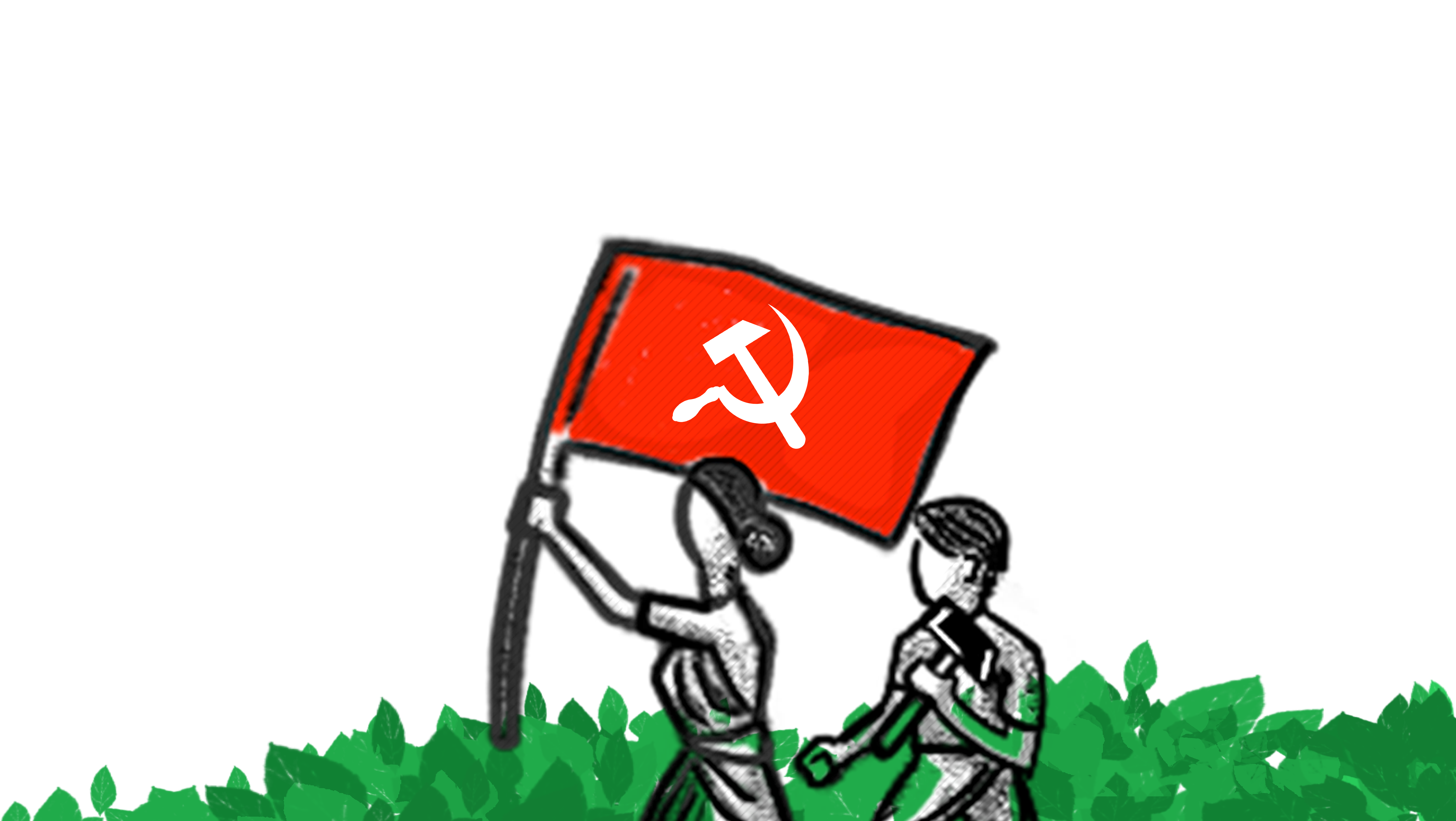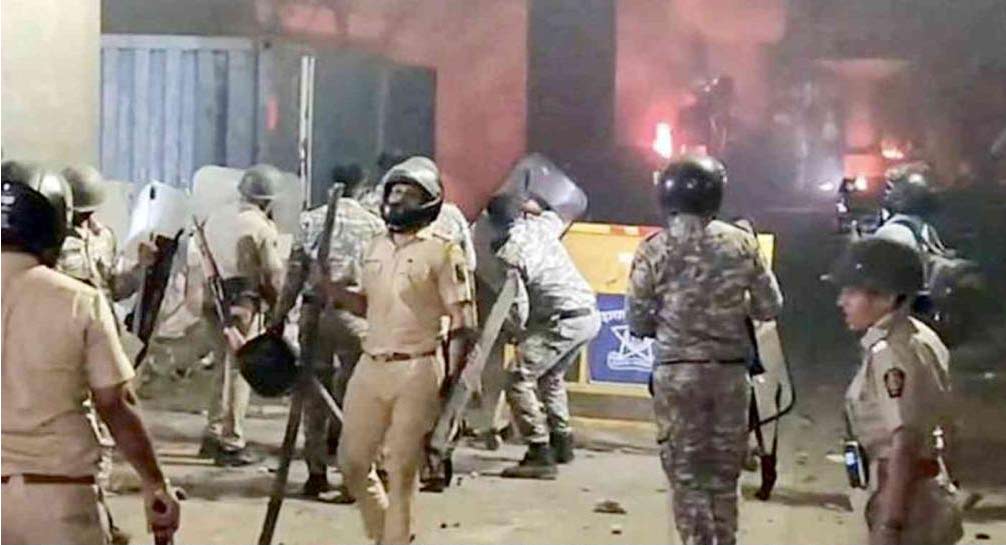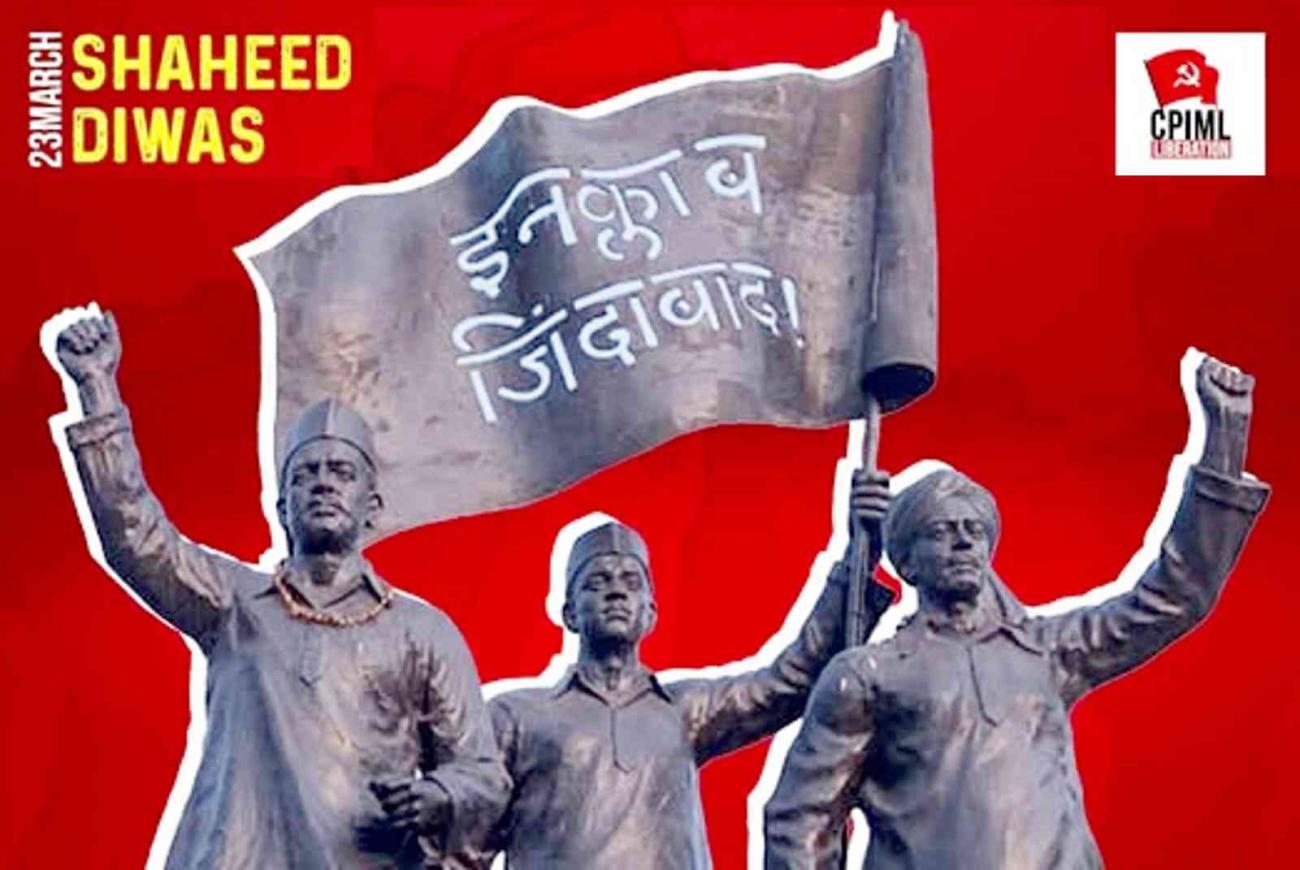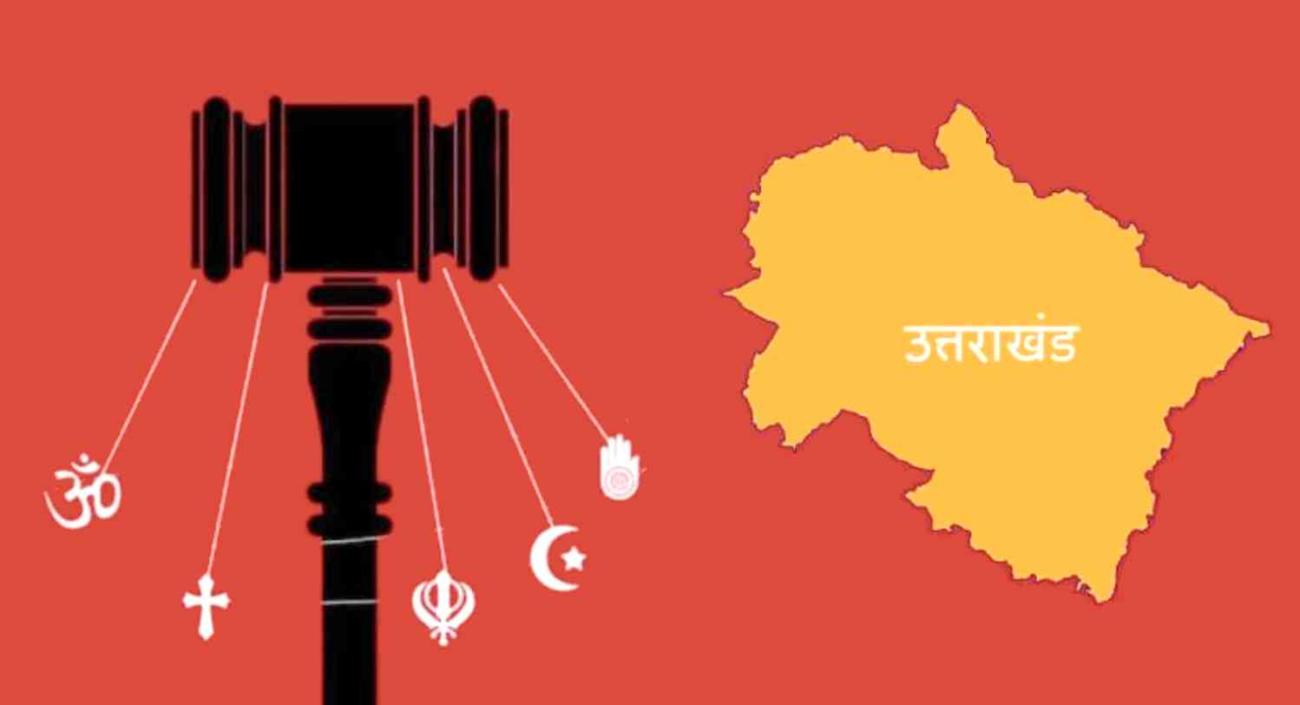Lets address some of these sentiments.
To begin with, was Sinha misunderstood? Were his words taken out of context? Did he actually mean the opposite of whats being attributed to him? Reading out his formal regret statement, Sinha claimed that in fact, he had been ridiculing rather than endorsing the idea that if you cant stop rape, enjoy it.
Some might argue that even if that were the case, the use of an enjoy rape analogy would be unacceptable. But I think the intent behind the analogy does matter. For example, if I were to say, justifying dalit massacres by accusing dalit struggles for wages, land, and dignity of being provocative is like justifying rape by accusing womens clothes or freedom of being provocative�, it would be an acceptable analogy, because it is grounded in a firm rejection of any justification of rape. Were Sinhas remarks inviting us to share an abhorrence of the idea that rape, if it cant be stopped, can be enjoyed? Or were they inviting us to share the widespread notion that rape, like betting, is an inevitable yet pleasurable vice, a forbidden yet naughty pleasure that we can choose to enjoy? Lets take a close look at his actual words, and his subsequent explanation.
Speaking about whether or not betting should be legalised, he said, If there are lotteries in states, if we can have casinos in tourist resorts and if government can declare schemes for voluntary disclosure of black money, what is the harm if we legalise betting? Above all, do we have the enforcement agencies? If you cant enforce it, it is like you cant prevent rape, enjoy it. It is better to legalise it and earn some revenue rather than throwing up your hands.�
Sinhas explanation for this was: I gave my opinion that betting should be legalised and that if the laws cannot be enforced, that does not mean that laws should not be made. This is as erroneous as saying that if rape is inevitable one should lie back and enjoy it.�
So, what purpose was Sinhas rape analogy serving here?
Theres no debate here, that Sinha was arguing for legalising betting. Was he saying, as he subsequently claims, that laws legalising betting should be made even if we cant enforce them; if not it would be like arguing that if one cant prevent rape, enjoy it? It is all too clear that this interpretation of the analogy simply makes no sense, since rape laws make rape illegal, and Sinha was arguing for laws to make betting legal. Sinha wasnt talking about the inability of enforcement agencies to enforce laws legalising betting, he was talking about their inability to enforce laws that punish betting. The only coherent interpretation of his use of the enjoy rape analogy is: If we cant enforce a ban on betting, lets legalise it; just as if you cant stop rape, you can enjoy it. His disingenuous claim that he used the rape analogy to say: if laws cannot be enforced, that does not mean laws should not be made, could be credible only if he were arguing for laws penalising or banning betting.
And above all, there are a range of acceptable analogies Sinha could have used to make his point about legalising betting: such as If you cant beat em, join em or What cant be cured must be endured. If an analogy about enjoying rape came to his lips instead, its because he does not, in fact, see anything very wrong in suggesting that rape could be enjoyed by women.
So, lets be very clear. Ranjit Sinha hasnt apologised. He hasnt said, I am appalled that I used words that suggest that women might enjoy rape. Rape and enjoyment are mutually exclusive categories - morally, legally, and in the spirit of the Indian Constitution. I would like the rank and file in the police force and CBI, as well as all the boys and men hearing me, to understand that any jokes or flippant remarks about rape being enjoyable, whether in private or in public speech, are unacceptable and condemnable. His expression of regret and avowal of respect for women doesnt in fact reflect an iota of respect for the criticism women are levelling at his remark. Instead, what hes done is to try and smoothly mansplain his remark to us, telling us we didnt have the sense to understand it in its right context, but that hes still generous enough to regret his words if we chose to be hurt by them, because he respects us. Not good enough, Mr. Sinha.
Do we really have to keep demanding that Sinhas head should roll for his remark? Weve made our point, cant we now let it rest? Why should he have to lose his job? The answer to this question came home to me with stunning clarity when I heard the defence of Sinha offered on a national TV channel by former Delhi Police Commissioner TR Kakkar. Kakkar said that he has heard jokes/sayings about If you cant stop rape, enjoy it being used in a variety of contexts for decades in Army barracks and so on. Ranjit Sinhas only mistake, according to Kakkar, was that he failed to realise that Indians (i.e Indian women) lack a sense of humour.
There, you have it. We cant let Sinhas remarks go, we cant move on, precisely because the sentiment he expressed about rape is widely prevalent among top cops, Army officers, politicians, and so on (not to mention college youngsters who will grow up to be cops, army officers, politicians etc). The frightening fact is that top cops even a former Police Commissioner of Delhi believe its perfectly acceptable, even funny, to conflate rape with enjoyable sex. Another former Delhi Police Commissioner, KPS Gill (himself indicted for groping a female IAS officer), had declared, Delhi is the worst city� for rape, and for this I would blame the women who try to keep in tune with the trend. They are the ones who provoke them.� A former Mumbai Police Commissioner recently declared, again on national TV, that 90% of rape complaints are false, because the complainants are not injured badly enough to be hospitalised. Clearly, this top cop had trouble differentiating between rape and enjoyable sex unless the victims are either dead or brutally injured enough to be hospitalised. So, Sinhas sentiments have consequences for women who suffer rape those are the sentiments she will face from the police when she chooses to make a complaint.
There are other consequences too. The very idea that a joke about enjoying rape is acceptable and women should be able to laugh it off is a justification of sexual harassment. Jokes about sexual harassment and rape, are indeed the staple of many comedy routines. I was attacked on social media by many for objecting to a poetry show in which a certain Hindi poet-turned-politician performed a series of sexual innuendos/advances on a woman performer, who repeatedly and wittily, ticked him off for it. I was told it was a mutually consensual performance, a humorous and witty one, mere banter, why object to it? The extremely popular film 3 Idiots also had balatkar jokes, presented for the humour and enjoyment of college audiences. The question I ask and that I hope we can all ask ourselves is By making sexual harassment and rape as the stuff of jokes, arent we telling women that they should learn to take sexual harassment and even rape in their stride, as they should learn to take a joke? Arent we promoting a culture and an atmosphere where women are discouraged and even ridiculed for objecting to unwanted sexual advances and rape jokes?�
I can understand the sense of injured bewilderment expressed by Sinha and his cop colleagues and many other men too, at our outrage. In the mens club culture that prevails in most workplaces, homes, and social gatherings, such trivialisation of rape is perfectly acceptable. Ive made rape analogies and jokes since I was in college, why am I suddenly being reviled for it? is what many are feeling. The answer could lie in a closer look at the December 16 movement. In that movement, there were of course those who raised outraged cries for death penalty and castration. Those sentiments did nothing to challenge victim-blaming, sexual harassment, and rape jokes. If anything they bolstered the idea that brutal rape and disembowelment of a woman deserved hanging/castration but that in a less open-and-shut case, it would be acceptable to raise questions about the complainants character and motives. But what was truly path-breaking about the December 16 movement, was the fact that a very substantial number of the protestors expressed outrage against a culture that trivialised rape and blamed victims for it; that spoke of protecting women to justify attacks on womens freedom; and that expressed an unwillingness to further tolerate victim-blaming and rape-trivialising sentiments anymore.
What those protestors were saying and what were saying now is that well confront rape jokes, rape culture and victim-blaming in our homes, our college canteens, our workplaces, in Honey Singh songs and 3 Idiots movies. Well argue, well persuade, well protest such sentiments in the society we live in. But well demand swift and summary action when cops, judges, elected representatives and political leaders express such sentiments because their views arent private views, they are duty-bound to express public policy. When cops conflate rape with enjoyable sex, it isnt just a gaffe or a faux pas. Their views shape the policy adopted in investigations of rape complaints. And when the chief of Indias top investigating agency does it, it simply cannot be tolerated or excused, because to do so would be to make our peace with a public policy that demeans rape victims and trivialises rape.
Thats why we demand that Ranjit Sinha step down or be made to quit as CBI Director. And well not stop at demanding Sinhas ouster. Well demand that judges who declare that women who have pre-marital sex must not cry rape, or who suggest that women invite rape on themselves, should no longer remain judges.
We will demand that BJP and RSS take action against rape culture remarks by Mohan Bhagwat, Kailash Vijayvargeeya and Ram Jethmalani, and rape by Asaram; that Congress act against Abhijit Mukherjee, Sriprakash Jaiswal, and Botsa Satyanarayana; that CPIM act against their MLA Rezzak Mollahs remarks blaming womens clothes for rape; that Mamata Banerjee and TMC MLAs who accused rape victims of being prostitutes or women of bad character, step down... the list goes on.
And well pursue our demand that senior police officers and judges should be appointed only after rigorous screening to ensure that their views on women, oppressed castes, religious and ethnic minorities, and queer people pass the test of Constitutionality. Of course its important to ensure that CBI Directors are not corrupt or caged parrots of those in power. But its no less important to ensure that they understand and are committed to upholding and enforcing Constitutional values.





